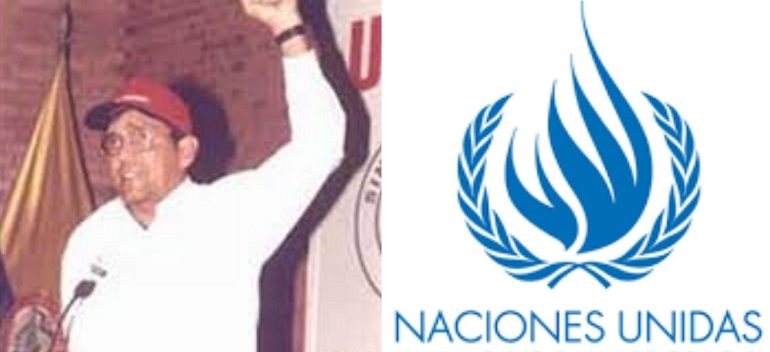
The United Nations Human Rights Committee declared the Colombian state responsible for violating the right to life and to an effective judicial remedy of a murdered trade unionist. This is an historic decision.
In August 2002, Colombian trade unionist Adolfo Múnera, a member of the agri-food sector union SINALTRAINAL and a Coca-Cola worker, was murdered. Previously, he had already been the object of death threats by paramilitary groups linked to the multinational. Nevertheless, the Colombian justice system didn’t do its job of investigating the instigators of the crime. For this reason, in 2015, the Committee for Solidarity with Political Prisoners (CSPP) and the Europe-Third World Centre (CETIM) – representing the family of Adolfo Múnera and the trade union SINALTRAINAL – submitted a complaint to the United Nations Human Rights Committee.
Five years after the submission of the complaint and eighteen years after the assassination, on 19 May 2020, the UN Human Rights Committee concluded that the Colombian state had violated the International Covenant on Civil and Political Rights (ICCPR).
The decision of the Human Rights Committee, which emanates from a UN body, constitutes jurisprudence and will serve as an example for other struggles against impunity around the world. Consequently, this decision becomes an instrument at the service of the mobilizations of movements and organizations facing this type of violence. Social movements around the world will be able to appeal to the competent judicial bodies in their respective countries using this jurisprudence.
This decision is also an example that demonstrates the possibility of using international law and UN bodies to support peoples’ struggles for social justice and against impunity. In this sense, international law is one of the battlegrounds in the fight for the right of peoples to decide their future.
Finally, this victory shows us the complementarity of the international and national spheres, the need to coordinate actions between international solidarity organizations, such as the CETIM, and organizations on the ground, in order to bring the struggles carried out at the local level to the international level.
Following this decision, the Colombian State is obliged to reopen an investigation to finally shed light on the assassination of the trade union leader and compensate the Munera family. The Human Rights Committee’s decision comes at a time marked by a high degree of violence in Colombia against the trade union and popular movement. We hope that it will serve to reverse this trend and contribute to the pacification of the country.